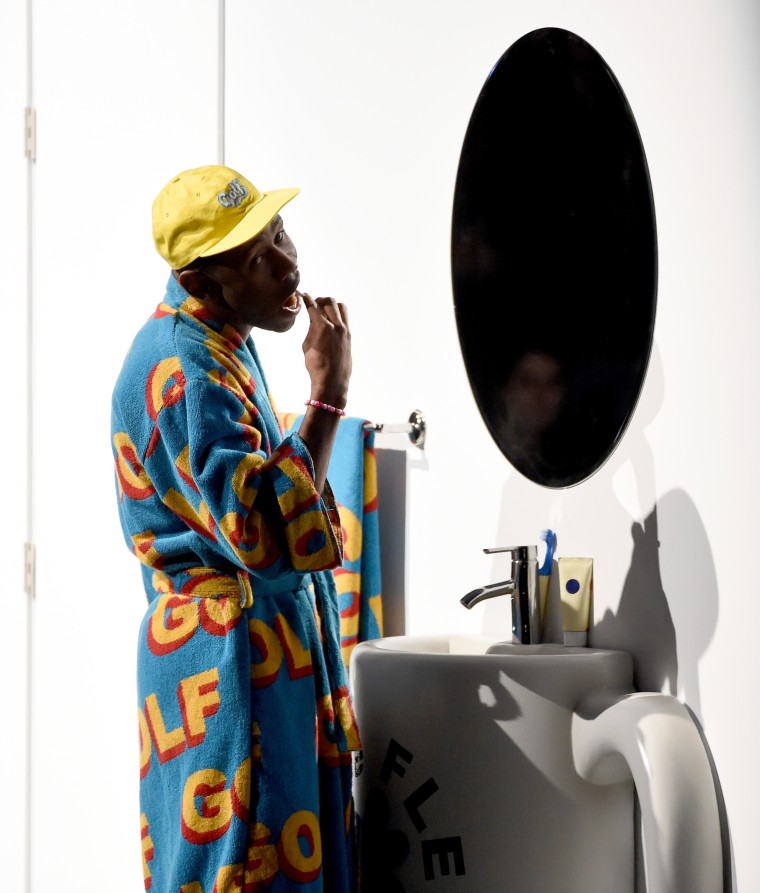 Kevin Winter / Getty Images
Kevin Winter / Getty Images
We don't know if Theresa May's appointment as prime minister is a popular move in the U.K., because the voting public weren't asked. After all the other candidates for Conservative party leader dropped out of the race, the home secretary was promoted yesterday, July 13, to replace the outgoing leader David Cameron (who resigned after Britain voted to leave the E.U. in June). Here's one thing we do know: May was home secretary at the time Tyler, The Creator was banned from entering Britain in summer 2015. As head of the Home Office, this was a decision that she oversaw.
Tyler's ban, based on old lyrics, appeared arbitrary and cruel, and was symptomatic of the way a number of culture-related issues were handled during May's time as home secretary. Here's some of her notable moments as home secretary; now she's in charge of the whole country, perhaps Tyler wouldn't want to visit again for a while anyway.
1. Edward Snowden is not allowed entry to the U.K. (June 2013)
May was quick to ban NSA whistleblower Edward Snowden from the country. As of June 2013, the British government has warned airlines not to allow the ex-CIA employee who leaked secret U.S. surveillance details to fly to the U.K.
In August of that year, she also dismissed a warning that the Metropolitan police had no legal basis to detain David Miranda under the Terrorism Act 2000. Miranda — the boyfriend of Glenn Greenwald, who has regularly revealed details of mass surveillance programmes by the U.S. National Security Agency — was detained for nine hours at Heathrow airport by U.K. officials. May said that the police acted within the correct "framework."
2. May outlines plans to censor TV (May 2015)
The home secretary faced criticism in 2015 when she outlined plans to give the British regulatory body Ofcom the power to view and approve TV shows before they aired. It was an intended as a method of tackling extremism, but was labelled "state censorship" by the culture secretary.
4. May tries to push through a bill for charting your browsing history (November 2015)
May loves state surveillance, and spent much of her period as home secretary trying to push through the Draft Communications Data Bill, nicknamed the Snooper's Charter. One of the worst elements of the bill, which she re-drafted and presented in November 2015, is the introduction of internet connection records which track a year of your personal web history, including social media.


